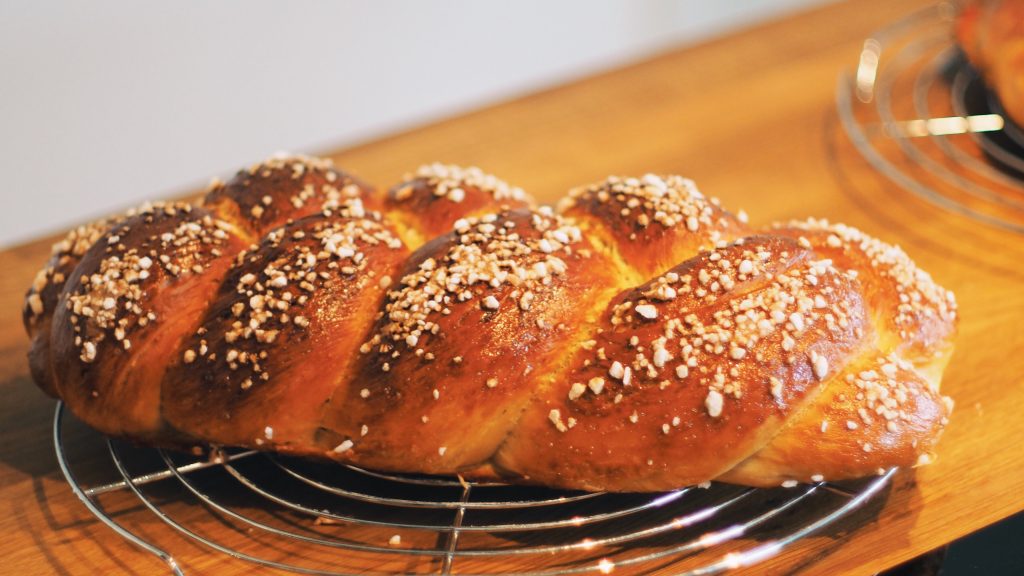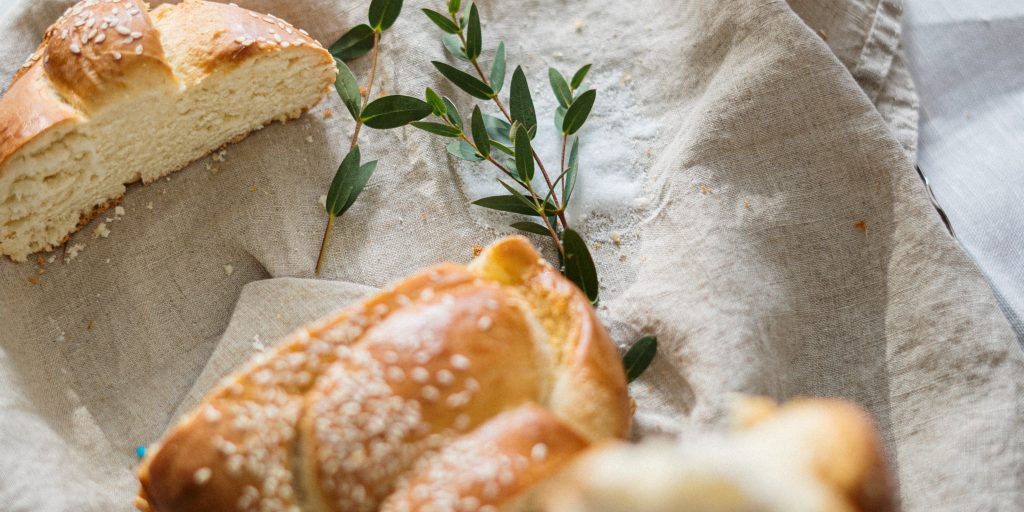You’ve decided to prepare Challah bread for your family ahead of time. You want to be sure that you have ample time to spend with your family. So how do you do it? Can you freeze Challah dough? Is freezing Challah dough the best plan for you?
Ideally, you can freeze anything you want. So, yes! You can freeze Challah dough. But is that the best option? Will the taste or texture change after freezing? When is the best time to freeze it? What’s the alternative?
What Is Challah?
Challah is a braided bread loaf that is made from water, flour, yeast, sugar, eggs, and salt. Challah bread is usually found among those who celebrate Jewish traditions. There is a religious and spiritual history intertwined with this braided bread.

What does Challah bread taste like? It is rich in flavor with a light and airy texture. There are a variety of Challah bread recipes. Some are reserved, and some are more adventurous with the addition of honey, seeds, or raisins.
Freezing Challah Dough
There is a war among preferences when it comes to freezing Challah. Some individuals prefer to freeze already baked loaves. Others prefer to freeze Challah dough between rises or proofing. Basically, it all points to preference. What would you prefer?
In order to freeze Challah dough, you will need to be sure that you properly wrap and store the dough. It is recommended to wrap the Challah dough after its first rise to wrap it in plastic wrap. You may choose to wrap in multiple layers to keep added moisture and air from the freezer away from the dough. Once wrapped, add your challah dough to a freezer bag. Make sure you remove all excess air from the freezer bag.
There are a couple of options when it comes to freezing Challah dough.
- You can freeze the challah dough in ball form. The dough balls are placed on a parchment paper-lined baking tray and placed in the freezer. Once frozen, the Challah dough balls are transferred to a freezer bag. With this method, Challah dough balls are frozen right after kneading and forming the balls. No time was given for the dough to rise or proof.
- Or you can choose to freeze the dough in its braided form. This option gives time for kneading, proofing, and braiding. After the first dough rises, the braided Challah dough can be wrapped tightly in plastic wrap and then added to a freezer bag.
Note: Challah dough can be frozen for up to three months. Also, be sure to label all of your freezer bags by writing the date and content on the freezer bags.
Thawing Challah Dough
Depending on which way you choose to freeze your Challah dough, there will be a few differences in the thawing process of the dough. Before you can bake your dough, the Challah dough has to reach room temperature.
To thaw Challah dough balls:
- Remove the freezer bags from the freezer to the refrigerator. You want to do this step at least the day before you want to bake Challah bread. This gives your dough the chance to thaw slowly and be coldproof.
- Take the Challah dough balls from the fridge. Sit them out and allow them to reach room temperature. Once the balls have reached room temperature, create your braided loaf.
- After braiding, allow the Challah dough to rise again. Once risen, now you can bake your Challah dough.
Thawing Challah dough in its braided form:
- Move the braided Challah dough from the freezer to the refrigerator. It is best to do this the night before.
- Sit the braided Challah dough out on a counter to reach room temperature. You can do this while you preheat your oven.
- After the dough has risen for the second time and reached room temperature, you can bake your Challah braided dough.
Note: Be sure to remove all of the plastic wrap and freezer bags after removing your Challah dough from the refrigerator.
Concerns About Freezing Challah
There are some concerns among those who wish to strategize and prepare Challah bread ahead of time. The most common questions are whether Challah bread’s taste will differ and if the texture will change after being frozen.
Fresh is always better. But if you store your dough or already baked bread correctly, then taste and texture should not be a problem. You can try both methods. Experiment and determine your preference.
Conclusion
Time is a commodity that we can never get back. Preparing Challah bread in advance is convenient, and it saves time. But that is only if you freeze and store your Challah dough correctly. The traditional Jewish braided loaf is a centerpiece during holidays and religious celebrations. So spend more time with your family, and freeze your Challah dough the right way.
